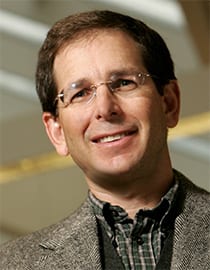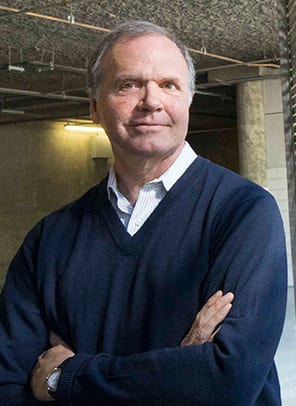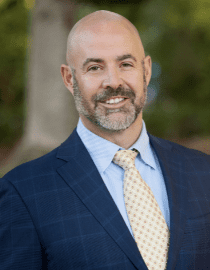
By Gwyneth K. Shaw
The Berkeley Center for Law & Technology’s (BCLT) Life Sciences Law & Policy Center debuted in late 2021, on the heels of the COVID-19 pandemic and amid a bright spotlight on the monetary and societal value of innovative treatments.
Just under three years later, it has blossomed into an extensive hub equipped to help practitioners, students, scholars, and life sciences entrepreneurs alike tackle important issues impacting the future of the life sciences industries, including drug pricing, current regulatory challenges, and how AI should be responsibly incorporated into life sciences applications and companies.
Inaugural Director Allison Schmitt ’15 has built a wide-ranging program for all stakeholders, including a robust life sciences-oriented law curriculum, multiple annual conferences that engage stakeholders across the life sciences ecosystem, and cutting-edge research.
Building on a storied history

The development of the center fits neatly into BCLT’s history. Founded in 1995 by Professor Peter S. Menell and bolstered by Professors Robert P. Merges and Pamela Samuelson as part of the high-tech boom of the ’90s, BCLT has been at the forefront as technology has transformed our lives. With exceptionally close ties to industry, government, and practitioners, BCLT’s leaders have kept pace during near-constant technological evolutions.
Schmitt and BCLT Executive Director Wayne Stacy view life sciences as a key growth area for BCLT.
“The Berkeley campus and the Bay Area are really leading in creative innovation and research in the life sciences space, and the law school needs to be a part of fostering that innovation,” Schmitt says. “We hoped that if we built a great program for students interested in life sciences, those students would come to Berkeley. But we also believe it’s critical to serve our community and campus with our legal programs, so I’ve focused significant energy on these goals as well.”
“At one point in time, the life sciences and high-tech industries were viewed as distinct, but no longer as AI and big data now impact all aspects of life sciences research and development,” Stacy adds. “BCLT needs to be at the center of legal evolution in these spaces.”
Vern Norviel, a longtime Berkeley Law lecturer, Wilson Sonsini partner, and co-founder of the Life Sciences Law & Policy Center, developed the idea for it after passing the special parking spaces UC Berkeley reserves for its Nobel laureates and envisioning the significant opportunities available from integrating the law school more fully with Berkeley’s life sciences research efforts. He hoped the center would be a bridge between the law school and the larger campus.
“Life sciences is obviously an enormous and increasingly important industry in our country, and I wanted to make sure Berkeley Law stayed ahead in all respects, including that one,” Norviel says.

He and his firm were among the founding donors for the center, alongside Genentech, Gilead, and Weil Gotshal & Manges. BCLT’s faculty co-directors, including Menell and Merges, also played integral roles.
“My vision was for Berkeley to be the No. 1 life sciences law school. Now, I don’t think there’s any law school in the country that’s got anything like what we’re doing,” Norviel adds. “It’s happened much more quickly than I’d expected, and much more deeply. I couldn’t be more proud.”
That success hinged on landing the right leader, Stacy says.
“We were very lucky to have found one of the nation’s leading experts in Allison to guide the development of the center,” Stacy notes. “Vision is nothing without execution, and Allison has spent the last three years building this into a huge success. She’s done a phenomenal job with our life sciences curriculum, conferences, and research agenda.”
Pushing boundaries in the curriculum
Schmitt, who has a Ph.D. in chemistry and was a seasoned life sciences litigator before returning to Berkeley Law, recalls there being only one course in the field when she was a student. These days, students interested in the life sciences sector have many more options and can explore potential careers in life sciences patent litigation, prosecution, technology transfer, and FDA regulation through a range of courses. Schmitt has been a key driver for several.
Schmitt and Menell developed and taught the two-semester Life Sciences & Innovation Workshop in the 2022-2023 academic year, where Berkeley Law and Ph.D. students developed a set of detailed case studies on breakthrough innovations in the life sciences ecosystem. The results of their ambitious research were recently published in a special issue of the Berkeley Technology Law Journal (BTLJ).
There’s a lot of rhetoric about how these burgeoning technologies can move out of the universities where many are born and be nurtured into the commercial development arena, Schmitt explains, but not a lot of empirical evidence. The course and research aimed to fill some of that gap.

“We definitely need more proof of what role intellectual property, various regulatory controls, and funding play in the effort to move an invention from the university to the startup to the large pharmaceutical company,” she adds. “That’s what prompted our exploration into this space, trying to figure out what the right methodology is and how we could be getting answers to these questions. So we put together a research workshop to help the students understand what the life sciences legal framework looks like, what the statutes and regulatory frameworks are, and how venture capital funding works in this space.”
Schmitt also developed the IP Practicum Clinic and Seminar course, which offers legal services to early-stage startups from the campus-wide innovation and entrepreneurship sector and launched in the Fall 2023 semester. The course, which will be offered again next semester, included expertise from co-instructor Adam Cole and guest lecturer Ali Alemozafar — both from Wilson Sonsini — and practitioners from several leading local firms.
Schmitt and Senior Director of LL.M. Career & Academic Advising Rachel Zuraw also created the Hot Topics in Life Sciences (IP & Privacy) course for Executive Track LL.M. students, offering access to academics and practitioners at the cutting edge of intellectual property and privacy issues in the U.S. and worldwide.
Many other courses are now available to students interested in the life sciences legal space, including Navigating U.S. Healthcare Law, Preparing to Practice Patent Law for 1Ls, the Patent Prosecution class with a specific life sciences track, FDA Law, and a tailored Biotechnology Law & Topics in Pharma Policy course.
There are notable debates and uncertainty within the life sciences community, Schmitt says, and it’s critical that students can engage with those questions before they start practicing.
“There’s a lot of nuance and complexity in practicing in the life sciences space — a lot of details that can give students an edge if they’re getting that knowledge early in their careers,” she explains. “A lot of what we’ve developed at the center is intended to be very practical from the student perspective. This is intentional, because I think that that’s the best way to prepare students to go out into the world and be successful practitioners.
Engaging with the Berkeley campus
Beyond developing a robust life sciences curriculum, Schmitt wants the center to play a pivotal role in engaging with the wider Berkeley campus.
“I think it’s also important that we are doing a good job of integrating with the campus community and beyond, and that’s something that I’ve really focused on,” Schmitt says. “I want to be an ambassador, to share legal knowledge more broadly throughout the life sciences ecosystem.”
The center’s signature events are making a big impact on the community. The Advanced Life Sciences Institute for IP and Licensing and the Privacy Law Forum – Life Sciences both bring together legal experts to discuss current issues and share best practices. They’re available on BCLT’s innovative B-CLE platform, along with more than 80 pre-recorded legal programs for entrepreneurs.
Schmitt sits on the campus Innovation and Entrepreneurship Council, works closely with the public health schools at both Berkeley and UCSF, and has established strong ties with the Bakar BioEnginuity Hub and the Haas School of Business. Courses developed by Schmitt and the center are available to graduate students across the campus, and the IP Practicum Clinic also serves entrepreneurs in the campus community.
Probing big research questions
Research is the third major focus for the Life Sciences Law & Policy Center and is intertwined with teaching and outside collaborations. Schmitt is currently leading multiple research projects, including work focused on FDA regulatory practices and an examination of technology transfer and incentivization of early-stage university research under the Bayh-Dole Act of 1980, which allowed higher-education institutions to own, patent, and commercialize inventions created using federal funding.
She’s also collaborating with researchers at Haas and the Forum on Collaborative Health, a nonprofit organization affiliated with Berkeley’s public health school.
The center also supports student research beyond the classroom. Will Kasper ’24 took the Life Sciences Writing Workshop as a 2L with Schmitt and Menell, ultimately drafting a published case study on the HIV treatment and prevention drug Truvada. By then, Kasper was co-editor in chief of BTLJ, and says the entire process was highly valuable.
“It was a joy to hone my legal writing skills while exploring fields I have interest in practicing in — both in the life sciences and in the field of patents,” he says.
Kasper, who will start in Covington & Burling’s San Francisco office in September, credits the Life Sciences Center for having “an immeasurable impact” on his career trajectory, both in creating opportunities at the firm and helping him land a a Federal Circuit clerkship in 2026.
“I’m excited about the prospects of working in the life sciences and related IP law-focused fields over the next few years, including assisting with patent appeals at the Federal Circuit,” he says.
Another star student, Al Malecha ’24, did several research projects with the center, including an exploration of the circumstances leading up to the FDA v. Alliance for Hippocratic Medicine case heard by the U.S. Supreme Court this year, which involved citizen petitions submitted to the FDA that received belated responses. These delayed responses allowed the plaintiffs to seek judicial review of the FDA’s approval of and subsequent guidance for the abortion medication mifepristone. Schmitt and Malecha collaborated on an article about this topic which will be published in the Harvard Journal on Legislation next year.
That project sparked a deeper interest in the FDA’s citizen petition process, so Schmitt and Malecha recruited undergraduate data science students to gather empirical data about the petitions, with the goal of creating a public database that compiles petitions and responses from 2001 to the present.
“Once it’s published, researchers and the public will be able to use the database to better understand how many FDA petitions go unanswered, why the FDA seems to let some petitions fall by the wayside, and how many petitions in a given period of time address a particular issue,” Malecha says. “This isn’t possible using the FDA’s public information, so we hope this will create more transparency and allow more effective analysis of the FDA’s actions.”
Schmitt’s mentorship was crucial in allowing Malecha to delve deeply into these research experiences.
“I absolutely love working with Allison,” Malecha says. “She has allowed me to continue work on research topics that I find interesting outside of class and has also been a consistent source of support for career advice.”
Kasper agrees.
“Allison has been a wonderful lecturer and mentor to her students,” he says. “She cares deeply about her students: she freely gave career and clerkship search advice, advice for how to best manage issues within BTLJ (where she had once been a leading editor too), and sought our input on her vision for the issue over the nearly two years we worked on it.
“My many projects with Allison were each my highlights of my time at Berkeley Law.”
Looking ahead, Schmitt sees almost boundless potential for the center as the life sciences sector continues to boom.
“I’ve worked hard to position Berkeley as the leader in these spaces, and I’m doing everything I can to keep us there — and go beyond,” she says.
Norviel more than shares that enthusiasm.
“I don’t think Berkeley Law is just No. 1 in this area — I think they’re the only one,” he says. “I couldn’t be more ecstatic that so much has happened so fast.”